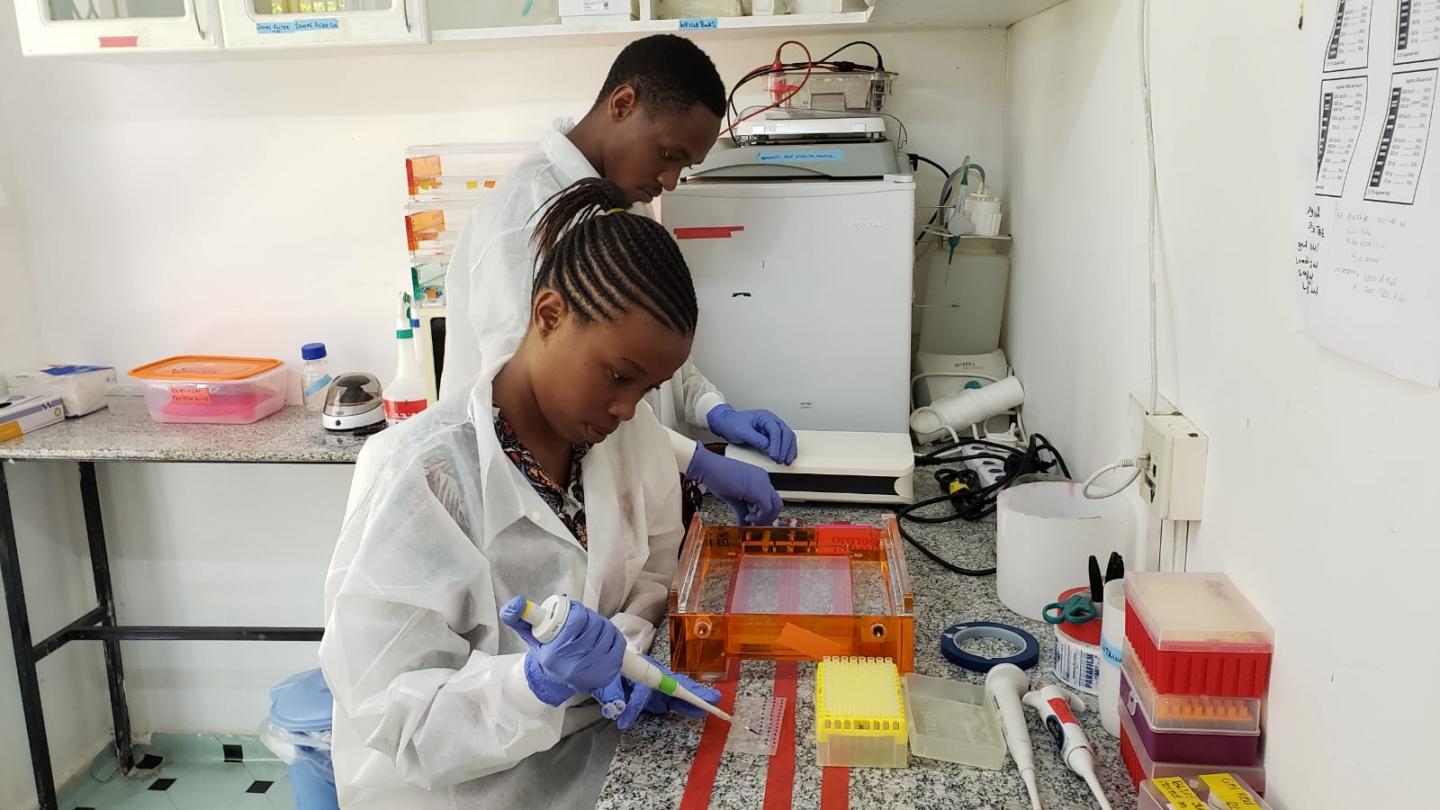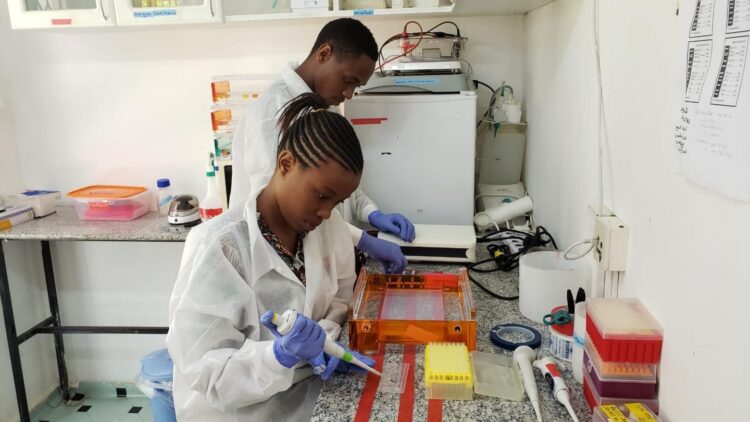Early laboratory detection of SARS CoV-2, tracking animal source among priorities

Credit: Courtesy USAID PREDICT
PREDICT will provide emergency support to other countries for outbreak response including technical support for early detection of SARS CoV-2, the virus that causes the disease COVID-19, through a six-month extension from the U.S. Agency for International Development, or USAID, effective April 1.
The 10-year PREDICT Project, part of USAID’s Emerging Pandemic Threats Program, was initiated in 2009 to strengthen health security and global capacity for the detection and discovery of viruses of pandemic potential that can move between animals and people.
Led by the One Health Institute in the UC Davis School of Veterinary Medicine with consortium partners around the world, the project has worked in more than 30 countries throughout Africa, Asia and Latin America to enable zoonotic disease detection capabilities in more than 60 laboratories and train a One Health workforce of nearly 7,000 cross-trained professionals.
STRENGTHENING GLOBAL LAB CAPACITY FOR DETECTION
Previously scheduled to conclude in March 2020, the PREDICT project had been supporting partners in Asia and Africa providing technical assistance for laboratory response during the COVID-19 outbreak, including laboratories in Thailand, Cambodia and Nepal.
By using PREDICT’s detection protocols before the virus sequence and specific assays were available, these labs were able to detect the new SARS CoV-2 virus in some of the first patients that traveled outside China.
With the $2.26 million extension, the PREDICT project will continue to provide technical expertise to support detection of SARS CoV-2 cases in Africa, Asia and the Middle East to inform the public health response. The project will also investigate the animal source or sources of SARS CoV-2 using data and samples collected over the past 10 years in Asia and Southeast Asia.
“The PREDICT-trained labs and networks have been key for detection of initial cases in their countries,” said Professor Tracey Goldstein, pathogen detection lead for PREDICT and an associate director of the UC Davis One Health Institute. “They are a trusted resource in their countries, are assisting with coronavirus detection and included on government task forces to support the response.”
INVESTIGATING THE ANIMAL SOURCE OF SARS COV-2
Over the past 10 years, surveillance teams in Asia and Southeast Asia collected more than 57,000 animal and human samples and identified bat families that are likely to carry viruses in the SARS group. They have provided insight into potential animal host or hosts of SARS CoV-2.
The PREDICT project’s collaborating laboratories will conduct SARS CoV-2-specific testing on samples collected from the region including from markets.
Existing project data will be analyzed to investigate the risks for virus spillover and spread at these markets and other high-risk animal-human interfaces, including human behaviors, types of animals present, value chains and networks.
“The current COVID-19 pandemic reminds us that none of us are immune to viruses that emerge from animals to infect people,” said Christine K. Johnson, professor of epidemiology at UC Davis and director of the PREDICT project. “Early detection of imported COVID-19 cases by the PREDICT network of One Health professionals, and their ability to contribute to characterization of the original source of this pandemic, highlights the need for continued work in support of collaborating countries.”
###
Media Contact
Kat Kerlin
[email protected]
Original Source
https:/





